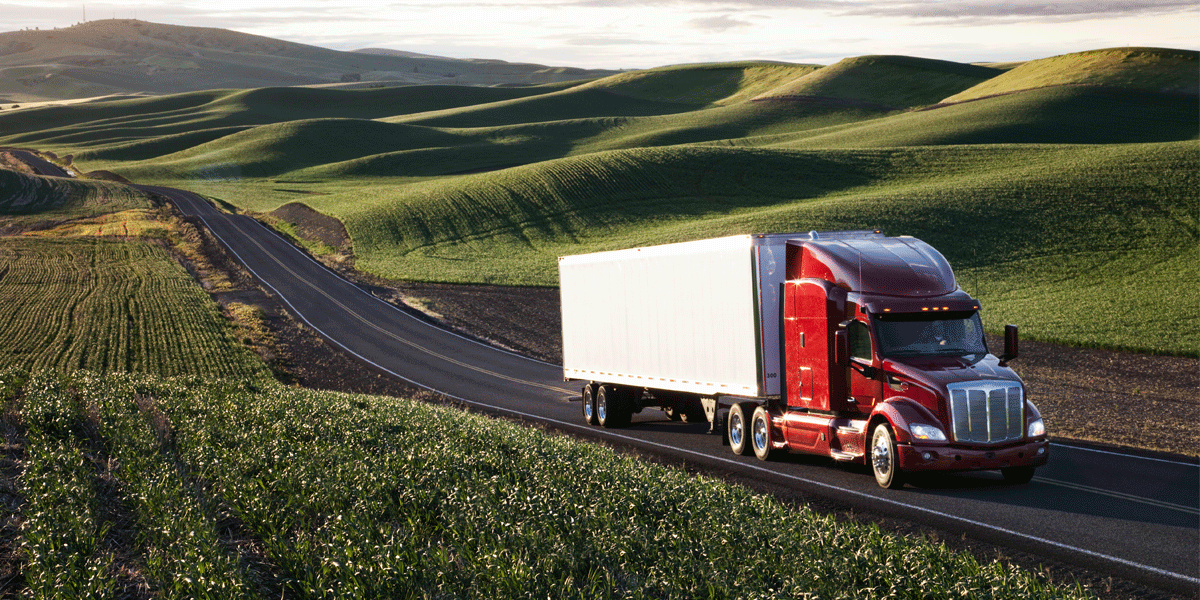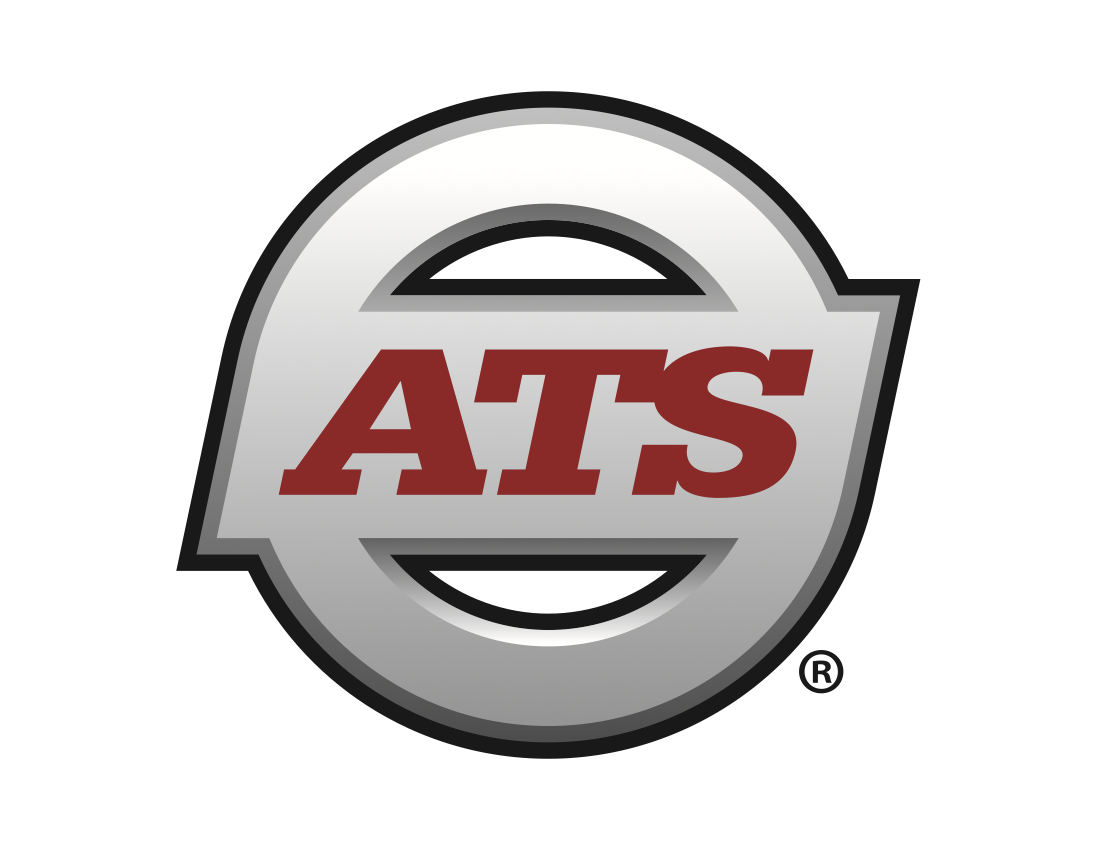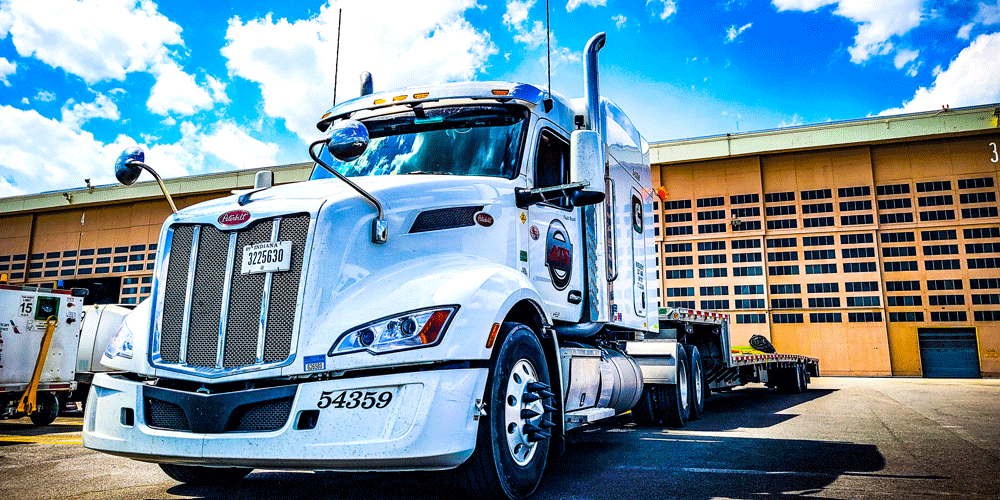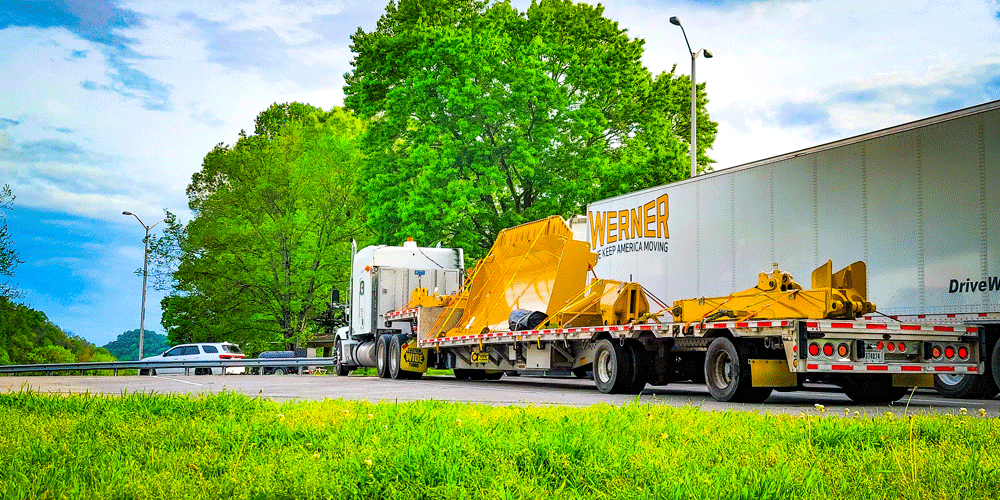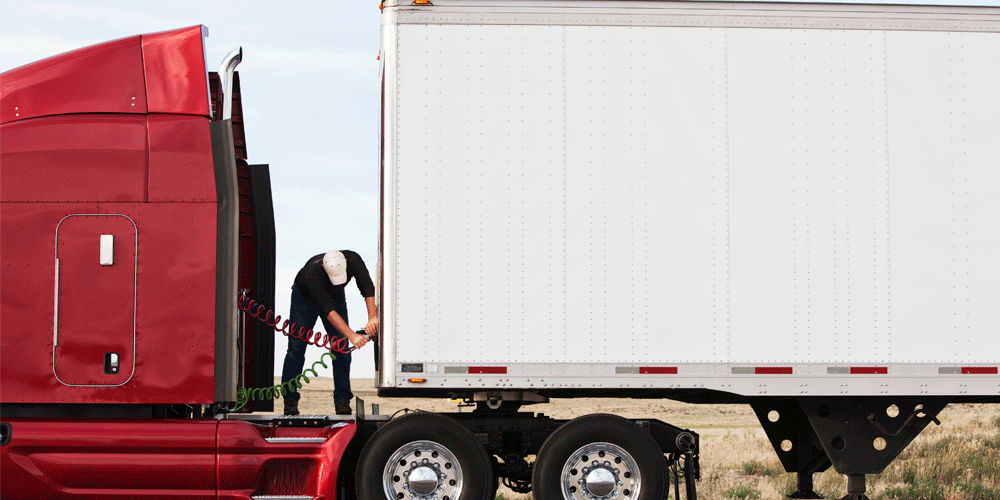Pepsi versus Coke.
Grape versus strawberry jelly.
Ford versus Chevy.
Freightliner versus Peterbilt.
There are just some debates that people will probably go back and forth on for eternity, and the debate about which truck make and model you should drive as a truck driver fits into that category.
Do a quick Google search and you’ll find that everyone has an opinion on which semi-truck make and model is better.
This one costs more!
This one always has this one thing wrong with it!
This one is cheap!
There are complaints you’re just always going to hear about every truck make out there — not just Freightliner and Peterbilt — so how do you know what’s accurate and what’s not? How do you get to the truth of the matter? How do you find the best truck for your needs?
At Anderson Trucking Service (ATS), every day we help drivers like you choose a truck with the specs that will meet your needs and help you to be successful on the road.
Freightliner and Peterbilt are among the most popular semi-trucks out on the road. We’re here to help you learn a little more about Freightliner and Peterbilt trucks and to help you make a good buying decision.
Once you’re finished reading, you’ll feel better equipped to select the best truck for your needs.
The Benefits of Freightliner Trucks
Freightliner celebrates its 80th anniversary in 2022. They’re future-focused and aim to lead the industry in quality and innovation. In terms of their product testing, they far exceed other brands. They primarily build heavy-duty class 8 diesel trucks but they also build class 5-7 trucks.
A primary focus of Freightliner is to make the cost of ownership accessible to drivers so that they can make their business competitive. That means they have addressed the top factors to maximize profitability, which include fuel efficiency, connectivity, safety, quality and uptime.
Freightliner is known for its robust dealer network. That means as a driver, you have access to new and manufactured parts and components. You can rely on excellent service and maintenance across the country if you have a breakdown. Their impressive dealer network means you’ll have better access to parts, which means less downtime and more uptime for you.
Freightliner is also unique in terms of how they manufacture their trucks. Their trucks run on the Detroit Integrated Powertrain. The engine, transmission and axle are specifically-engineered Detroit components that work together seamlessly to create an efficient system optimized for performance and reliability. Each of these components is powerful on its own, but when they work together, they have unprecedented levels of performance which in turn boosts your fuel economy, safety and reliability.
The Cascadia is a popular Freightliner model.
The Benefits of Peterbilt Trucks
Peterbilt was founded in 1939 and aims to create purpose-built vehicles that last. They’re focused on ensuring that they’re an environmentally-friendly company. They make both medium-duty and heavy-duty trucks. Peterbilt is an iconic brand known for its rugged and reliable products.
Peterbilt offers industry-leading safety and technology features on each of its trucks, superior comfort, maneuverability and value. The ergonomic interiors of Peterbilts offer best-in-class visibility. In addition to accommodating, comfortable interiors, Peterbilt offers a SmartAir™ no-idle climate system in the Model 579 and Model 567 to promote comfort while lowering fuel costs.
Safety is important to Peterbilt. SmartLINQ™ remote diagnostics is designed to monitor the health of your truck at all times. If there’s an issue, the system sends an alert to your dispatcher (if you have one) and the closest Peterbilt dealership.
Peterbilt trucks rely on an integrated PACCAR Powertrain, which is crafted with strong, yet light, materials to ensure your truck runs cleanly and efficiently. This differs from the Freightliner Detroit Integrated Powertrain.
The 579 is a popular Peterbilt model.
Understanding the Truck Manufacturing World: Which Truck Should You Choose?
Brand loyalty is certainly an important factor that many drivers consider when choosing their next truck. There are some drivers who simply must drive a Freightliner or they must drive Peterbilt because that’s the only thing they’ve driven and that’s the only thing their family members have driven.
However, before you can make your decision between Freightliner and Peterbilt — or even Kenworth, International, Western Star, Volvo or Mack — you must first understand more about the truck manufacturing world.
The class 8 truck manufacturing world isn’t the same as the automobile manufacturing world, where there are dozens and dozens of companies all doing things differently.
Only seven truck manufacturers are serving the U.S. and they’re all sourcing the same parts from around the world from similar manufacturers. Several of these companies share ownership. That means that, depending on how you spec your truck, you can end up with a very similar truck whether it is a Kenworth or a Volvo or a Peterbilt.
For instance, both Kenworth and Peterbilt trucks are manufactured by PACCAR, so they both use PACCAR engines. You could build out a truck and cherry-pick the parts and the end result would be two very similar trucks.
While the truck brand is important, the most important thing to consider when you’re choosing your truck is what you’ll be using your truck for. What type of freight will you be hauling? What type of roads will you be driving on? Do you need a lot of space because you’ll have a rider with you often? Are you a long-haul trucker or will you be driving local routes?
A Semi-Truck Buying Guide: What Should You Ask When Buying a Truck?
The next time you head to a dealer to buy, lease or custom-build a semi-truck, you must consider a few important factors — not just the brand. Whether you’re building out a truck that’ll be ready in a few months or you’re purchasing a used truck, consider how the truck’s features will meet your unique needs.
When you’re speaking with the salesperson, make sure you keep these ideas in mind and ask the right questions to get the make and model you need to succeed.
Is it Suited to your Application?
No truck is one size fits all. The number one thing you should consider when you’re building out your truck or buying a truck is whether or not the truck can handle the job you need to do. Your truck needs to have the power to handle the freight you plan to haul.
When you walk into a dealership, it’s your job to make sure the salesperson knows how your truck will be used. What will you be hauling? Are you hauling general freight or over-dimensional loads? Are you going to be driving through the mountains? Or will you primarily be driving through the Great Plains? Are you a long-haul, short-haul or local driver?
If you’re a heavy haul driver, you need a more powerful truck with more horsepower. If you’re driving through the mountains, you’ll need a different gear ratio in your truck. When you take these factors into account, you’ll be buying a truck that is matched to your specific needs.
Does it Fit Your Budget?
You may want the fanciest truck, but you have to be realistic about your budget.
When you’re meeting with the salesperson, be upfront about your budget from the start. They can provide you with a list of truck options that fit within your budget and you can go from there.
There’s nothing worse than finding your dream truck with every feature you desire only to find out there’s no way it’ll ever fit into your budget.
Is it Comfortable and Spacious?
Comfort and space are huge, especially when you’ll essentially be living in the truck. There are different sizes and shapes of sleeper cabs and you can customize how much storage is in the truck.
If you’re purchasing a used vehicle, look inside the cab, test it for comfort and see if it suits your storage needs. For instance, some trucks come with a coffin sleeper. This style simply won’t work for some drivers.
How Does it Drive?
You should test drive the truck if possible. If you’re building out a new truck, see if you can test drive a model similar to the one you’re going to be purchasing. The truck should ride smoothly and maneuver easily.
You also want a quiet truck. Studies show that louder trucks can lead to more driver fatigue.
Does it Have a Warranty?
If you’re purchasing a used truck, be sure you talk to the dealership about warranties. Is there a warranty remaining on the truck? What does it cover? Make sure the warranty suits your needs.
If you’re purchasing a new truck, make sure you understand the warranty policies.
Ask if the dealership has maintenance records so you know the complete history of the truck.
Does it Have Accident Mitigation Technology?
If you’re purchasing a used truck, find out if it has accident mitigation technology installed. All the newer trucks will have this, but some of the older ones might not. Accident mitigation technology is an important feature for some drivers, while others may not have a preference.
A Note On Brand Loyalty
It’s impossible to create a semi-truck buying guide without mentioning brand loyalty. It may still be part of your decision-making process.
Make sure that when you’re considering the truck brand, you consider the brand’s commitment to innovation, safety and uptime. Are they constantly introducing innovative solutions? Do they have a great dealer network to get you up and running after a breakdown? This is especially important if you’re a long hauler.
How Will the Truck Shortage Affect You?
When it comes down to it, Freightliners and Peterbilts are both great trucks and can be built to meet your unique needs.
Just be sure when you’re building out or selecting a truck that you carefully consider what you’ll be using the truck for and how that should carry over to the design of the truck. Be honest with the dealership about what you need.
We’re currently in the midst of a parts and truck shortage, due in part to the pandemic. This can have a significant impact on the availability of the truck you want if you’re buying or leasing — whether the truck is used or newer. It also impacts the timeline of new builds. While a new truck used to take maybe several months to build, it may take as long as a year to build now. Keep this in mind when you’re looking to buy a truck.
At ATS, we have a leasing program and we partner with dealerships to help get you in the truck model you want. Learn more about our lease-purchase program and the truck models we have available.
